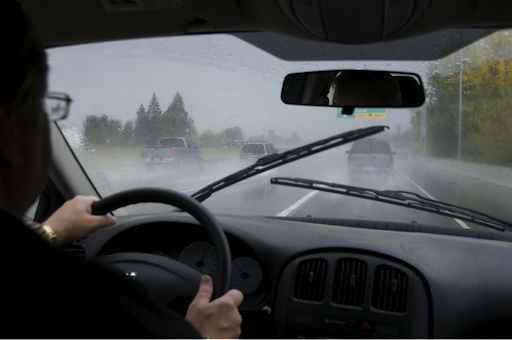The Hazards of Spring Driving: What to Keep in Mind

Driving in the winter can be stressful. So, when signs of spring start to appear and the weather gets warmer, drivers start to let their guard down. But driving in the spring can be just as dangerous as driving in the winter, and drivers should be especially alert behind the wheel during spring thawing.
Road hazards in the spring
One of the major hazards as the weather gets warmer is an increase of potholes on the roads. When the snow melts, the water seeps into the cracks of the pavement. This can soften the gravel. With the constant freezing and melting of the water leading up to spring, the cracks in the pavement can expand and open to become potholes. Hitting potholes can potentially ruin the tires, suspension and alignment of your car.
When driving on roads with potholes, avoid driving over them if possible. But if you’re unable to avoid the potholes safely, simply slow down to minimize potential damage to your car, and to keep yourself safe. If possible, avoid driving in the lanes next to the curb, as those lanes are typically where water drains off the roads and can be a site for more potholes. These lanes and potholes can also create large puddles that can cause your vehicle to hydroplane. This can happen if your vehicle drives over water and skids on top of the water, causing you to lose control. If your car does hydroplane, gently ease your foot off the accelerator to avoid losing control.
Melting snow, ice and dirt in the spring time can create slush on the roads. Slush can grab onto the tires of your vehicle, limit your tires’ traction on the road and slow you down. Driving in slush can cause the driver to lose control of the vehicle and potentially spin out. It’s important to remember to drive slowly in and around slush, avoiding it if possible, and not to panic if you lose control of your car.
The continuous cycle of melting and freezing of snow and ice in the lead up to spring can create dangerous patches of black ice to form on the roads, and especially on bridges and overpasses that are more prone to overnight freezing. Take caution while driving in potential conditions for black ice, as well, be aware of the weather and road conditions before driving.
Out and about in the spring
More people will be outside as the weather gets warmer. Bicyclists and motorcyclists will be joining the traffic, and it’s important to remember to share the roads with them. Be aware of cyclists on the roads. When sharing the road with cyclists, perform extra mirror checks and be alert of your surroundings.
Spring thawing also means that more people will be outside enjoying the warmer weather. This means that more children will be playing in the streets, especially in residential areas. Drive slowly and alert.
Spring maintenance on your car
Even though the weather is getting warmer, don’t be too hasty to switch your winter tires off. The weather can still dip below zero, and winter tires will perform better than all-seasons when it gets cooler than 7 degrees Celsius, so keep them on a little longer.
The winter has probably worn out your wipers with the constant snow, slush and ice battle they’ve needed to clean off your windshield. Windshield wipers can last anywhere between six to 12 months, but it primarily depends on how much wear they are getting. If your wipers have started to streak when you turn them on, or aren’t cleaning your windshield properly, swap them out for a new set.
Spring may also be a good time to bring in your vehicle for a maintenance check. Have a look at your suspension, alignment and brakes especially. After driving through potholes, ice and the mess of winter, a quick check to make sure everything is functional for the warmer months would be smart.
Spring driving has hazards of its own. It’s important to stay alert and be prepared while driving during the warmer months. If you have been injured this season, either in your vehicle or as a pedestrian, contact us today to learn about how we can help you receive the compensation you deserve.













